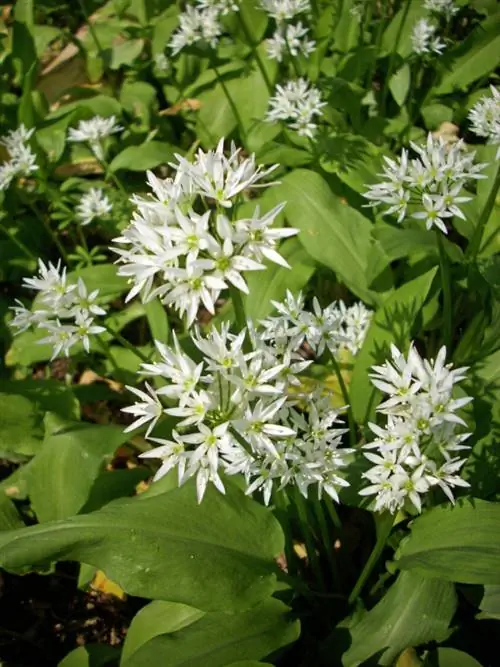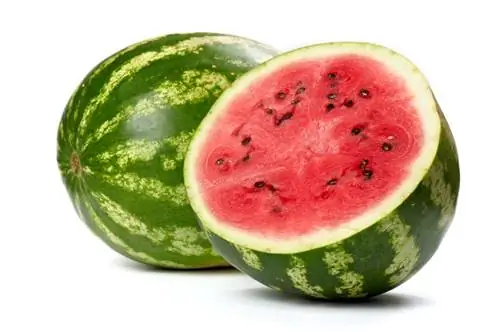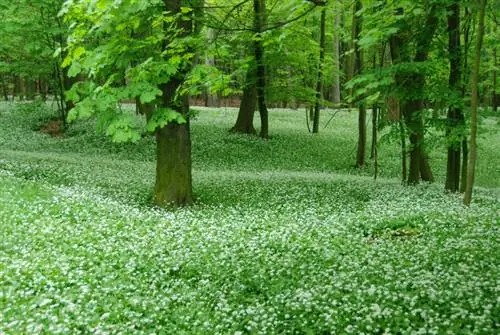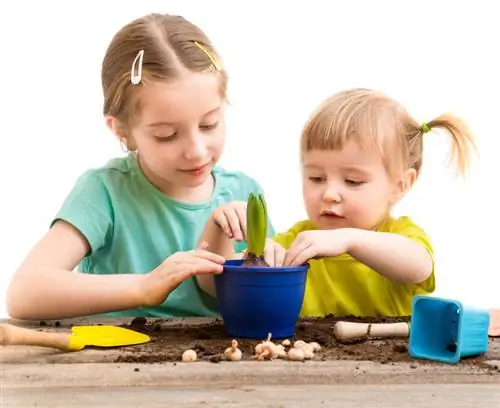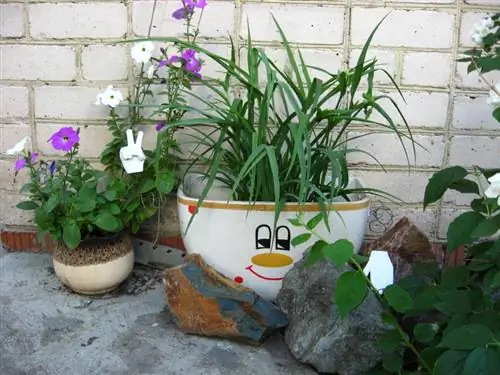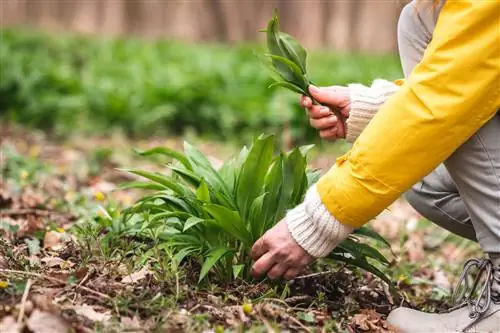- Author admin [email protected].
- Public 2023-12-16 16:46.
- Last modified 2025-01-23 11:20.
In addition to growing from onions, the wild garlic seeds can also be used to propagate the sought-after plant. However, there are some special features of wild garlic that need to be taken into account when harvesting and sowing the seeds.
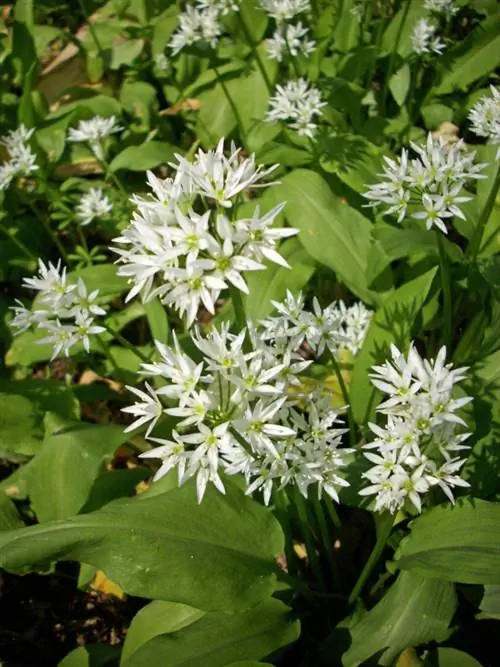
How do you sow wild garlic seeds correctly?
To sow wild garlic seeds successfully, harvest the ripe, black seeds in June or July. Mix it 1:3 with moist sand and store the mixture at room temperature for 4 weeks, then at 0-4°C for about 1 month. Then sow them 2 cm deep at temperatures between 5-12°C.
Sow wild garlic seeds freshly
Wild garlic seeds lose their ability to germinate very quickly, which is why they should be put back into the ground as soon as possible after they have matured. The black wild garlic seeds are approximately spherical and about 2 millimeters in size. The wild garlic seeds are cold germinators, which only break seed dormancy and begin to germinate after the winter cold. However, in mild winter temperatures it can also happen that the seeds only enter the germination phase in the second year. But there are also certain techniques to artificially simulate seed dormancy. Depending on the region, the seeds are harvested ripe from the inflorescences in June or July. Then these are mixed with moist sand in a ratio of 1:3 and stored in a bag at room temperature for about 4 weeks. The mixture is then stored for around a month at temperatures between minus and plus 4 degrees Celsius before sowing at a depth of around 2 centimeters and at temperatures between 5 and 12 degrees Celsius.
Harvest wild garlic seeds
Outside nature reserves, you can harvest wild garlic seeds in nature if you transport the ripe seeds together with the wilted flowers in a bag to your garden in June or July and lightly work them into the substrate at the desired location. Then keep the soil sufficiently moist in autumn and winter in case there are natural dry periods. Please make sure that you always only harvest part of the leaves or seeds from natural wild garlic populations in the forest, so that the natural reproduction and regeneration of the occurrence is still guaranteed.
Resist temptation
All kinds of delicious dishes can be conjured up from the different parts of the wild garlic, such as:
- Wild garlic pesto from the leaves
- Wild garlic soup
- Wild garlic capers made from pickled wild garlic buds
Every leaf that you harvest from wild garlic is missing from the plant for further development. Therefore, only cut off some of the leaves and buds for use in the kitchen so that the stock in your garden can continually recover and automatically multiply by self-sowing the seeds.
Tips & Tricks
It takes a lot of attention and effort to keep wild garlic seeds in pots evenly moist during the long germination period. Therefore, sowing on site in the open field usually brings better results with less maintenance effort.

